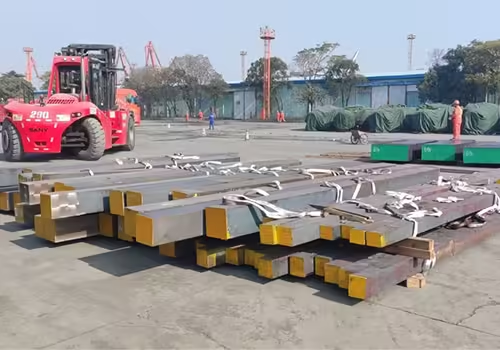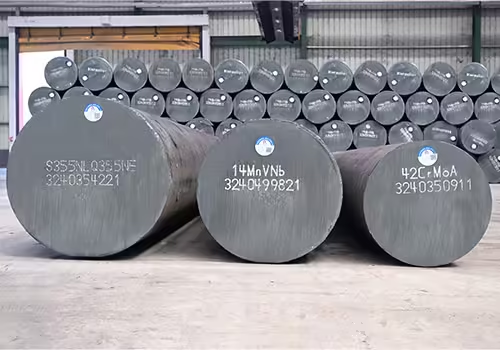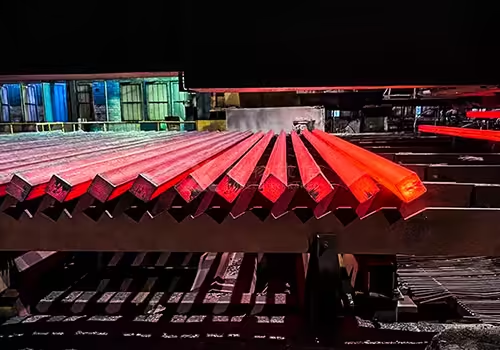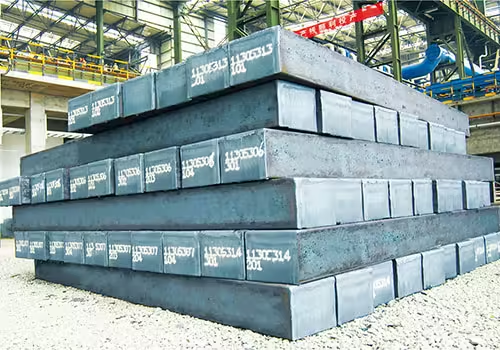
Is Billet Aluminum Stronger Than Steel? A Complete Comparison Guide
Table of Contents
Introduction

The question “Is billet aluminum stronger than steel?” has puzzled engineers, car enthusiasts, and fabricators for decades. Both materials are used in high-performance industries—from automotive parts to aerospace components—yet they offer distinct advantages.
In this article, we’ll break down what billet aluminum and steel really are, how their strength compares, and which material is the better choice depending on the application. We’ll look at physical properties, real-world performance, and common user questions to help you make an informed decision.
What Is Billet Aluminum?
Definition and Manufacturing Process
Billet aluminum refers to solid blocks of aluminum (or aluminum alloy) that are machined or extruded into parts rather than being cast or welded. This process results in a denser grain structure and fewer impurities, which enhances strength and finish quality.
Common Aluminum Alloys
The most widely used billet aluminum grades are 6061-T6 and 7075-T6.
- 6061-T6: Known for its versatility, excellent machinability, and corrosion resistance.
- 7075-T6: Much stronger but slightly less corrosion-resistant, used in aerospace and military applications.
Material Properties
Aluminum’s biggest advantage is its low density—about one-third that of steel. This makes it ideal for projects where weight reduction is essential, such as aircraft structures, racing components, or performance wheels.
What Is Billet Steel and Why It’s Still a Strength Standard

Concept: The Nature of Steel
Steel is an iron-carbon alloy, often combined with other elements like chromium, nickel, and molybdenum to improve hardness and corrosion resistance. It’s one of the most widely used structural materials on Earth.
Types of Steel
- Mild Carbon Steel: Common in construction, moderate strength and easy to weld.
- Alloy Steel (e.g., 4140): Enhanced strength and fatigue resistance.
- Stainless Steel: High corrosion resistance, used in marine or medical environments.
Mechanical Advantages
Steel’s microstructure can be heat-treated and tempered to significantly increase strength and wear resistance. This makes steel a better option when absolute mechanical strength and durability are top priorities.
Billet Aluminum vs Steel: Physical and Mechanical Comparison
Key Concept: Strength vs Weight
While aluminum is lighter, steel is stronger per unit area. To fairly compare them, engineers often refer to the strength-to-weight ratio, which measures how much strength a material provides relative to its weight.
Mechanical Properties Table
| Property | Billet Aluminum (6061-T6) | Alloy Steel (AISI 4140) |
|---|---|---|
| Density (g/cm³) | 2.7 | 7.85 |
| Tensile Strength (MPa) | 290 | 655 |
| Yield Strength (MPa) | 241 | 415 |
| Hardness (Brinell) | 95 | 217 |
| Elastic Modulus (GPa) | 69 | 200 |
| Corrosion Resistance | Excellent | Moderate |
| Machinability | Excellent | Good |
| Temperature Resistance | Low | High |
| Cost (per kg) | Higher | Lower |
Summary Insight: Billet aluminum is much lighter but only about half as strong as alloy steel. When extreme loads or long-term durability matter, steel remains the preferred choice.
Influencing Factors in Strength Performance

Material Composition
The alloying elements in both aluminum and steel dramatically affect their performance. Steel’s inclusion of carbon and alloy metals increases lattice density, resulting in higher mechanical strength.
Heat Treatment
Steel can be hardened and tempered to exceed 1000 MPa tensile strength, while most billet aluminum alloys peak below 500 MPa—even after heat treatment.
Environmental Conditions
Aluminum excels in corrosion-prone environments, but it loses significant strength at temperatures above 200°C, whereas steel maintains stability even past 500°C.
Functional and Practical Differences
Load-Bearing Capacity
Steel can sustain higher compressive and tensile loads, making it indispensable in heavy machinery, tools, and structural beams. Aluminum, though lighter, may deform under prolonged stress.
Fatigue and Longevity
Over time, repeated stress cycles (fatigue) degrade materials. Tests show that steel typically outlasts aluminum by 2–3 times in fatigue life for similar load conditions.
Corrosion Resistance and Maintenance
Aluminum’s self-protective oxide layer prevents rust without coatings. Steel requires paints, galvanizing, or alloying (like stainless steel) to achieve similar corrosion resistance.
Applications: When to Choose Aluminum or Steel

Automotive and Racing
- Billet Aluminum: Engine blocks, pistons, wheels—reduces vehicle weight.
- Steel: Chassis, suspension, safety cages—ensures strength and crash safety.
Aerospace and Marine
- Aluminum: Preferred for weight-critical components.
- Steel: Used in landing gear or engine parts exposed to heavy loads.
Industrial and Structural Use
Steel’s superior load capacity makes it essential in bridges, cranes, tools, and shipbuilding, where aluminum cannot provide adequate rigidity.
FAQ
Is billet aluminum stronger than steel?
Not usually. Billet aluminum is lighter and easier to work with, but in terms of raw tensile and yield strength, steel remains significantly stronger.
Why do people use billet aluminum if steel is stronger?
Because aluminum’s low weight improves fuel efficiency, handling, and design flexibility—especially in racing, aviation, or sports equipment.
Can aluminum replace steel in structural applications?
Only in limited cases. For high-stress or safety-critical parts, steel is still the better and more reliable option.
Does aluminum bend easier than steel?
Yes, aluminum is more ductile and less stiff, meaning it will bend more under equivalent force. This can be advantageous for energy absorption but limits its structural load capacity.
How does heat affect aluminum and steel differently?
Aluminum softens quickly above 200°C, while steel can withstand much higher temperatures without losing structural integrity.
Which material is better for outdoor or marine environments?
Billet aluminum resists corrosion far better than uncoated steel, making it ideal for marine or humid conditions.
Is billet aluminum worth the higher cost?
If your goal is weight reduction and aesthetics, yes. But for strength, impact resistance, and cost-effectiveness, steel usually wins.
What’s the best choice for car parts—steel or billet aluminum?
Use billet aluminum for performance and appearance; choose steel for strength, safety, and longevity.
Conclusion
When comparing billet aluminum vs steel, it’s clear that steel dominates in pure strength, durability, and temperature resistance, while billet aluminum excels in weight reduction and corrosion performance.
Ultimately, the right choice depends on your priorities:
- Choose billet aluminum for lightweight, corrosion-resistant designs.
- Choose steel for maximum strength, long lifespan, and cost efficiency.
In short: Billet aluminum shines in precision and performance—but when it comes to true toughness, steel still holds the crown.






